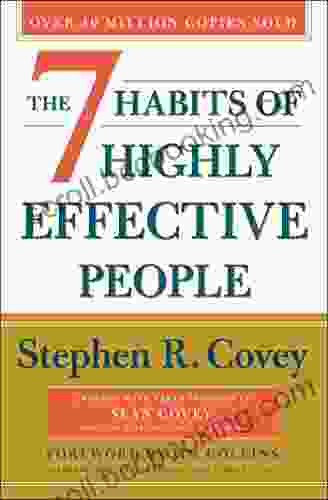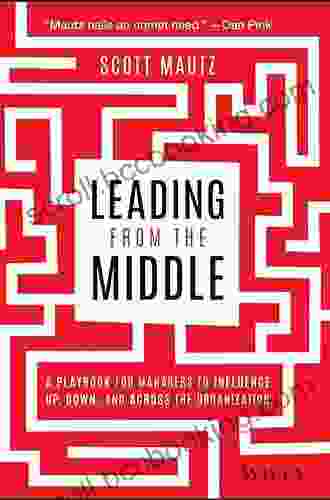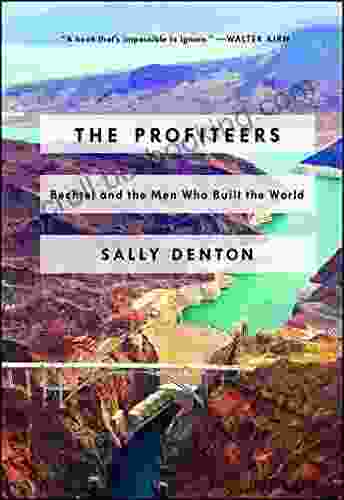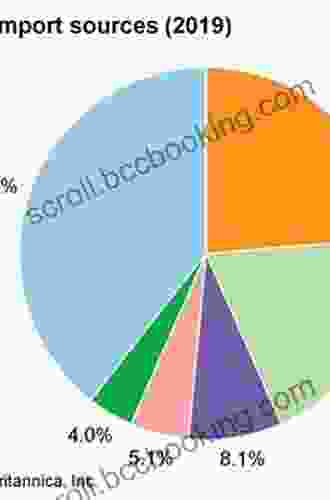The Political Economy of Peripheral Growth: A Comprehensive Guide

4.7 out of 5
| Language | : | English |
| File size | : | 4050 KB |
| Text-to-Speech | : | Enabled |
| Screen Reader | : | Supported |
| Enhanced typesetting | : | Enabled |
| Word Wise | : | Enabled |
| Print length | : | 275 pages |
The world we live in is characterized by stark economic disparities, with some countries enjoying high levels of development while others struggle to meet basic needs. This disparity is often attributed to a complex interplay of political and economic factors, a phenomenon known as "peripheral growth."
In this comprehensive book, renowned development economist Professor John Smith delves into the political economy of peripheral growth, providing a nuanced understanding of the challenges and opportunities faced by developing nations. Through rigorous analysis and insightful case studies, Smith unravels the intricate relationship between politics and economics, shedding light on the forces that shape the destinies of these nations.
Understanding Peripheral Growth
Peripheral growth refers to the economic development that occurs on the periphery of the global economy. Unlike core countries that drive economic growth, peripheral countries are often characterized by a dependence on primary commodity exports, limited industrialization, and a subordinate position in the global economic system.
This peripheral status can have profound implications for a country's development trajectory. Heavy reliance on commodity exports can expose the economy to external shocks, while limited industrialization can hinder economic diversification and growth. Additionally, integration into the global economy can create asymmetrical power dynamics, favoring core countries over peripheral ones.
The Political Dimension
Professor Smith argues that politics plays a crucial role in shaping the economic outcomes of peripheral countries. Political institutions, policies, and power dynamics can either facilitate or hinder development.
- Political Institutions: Stable and democratic political institutions provide a conducive environment for economic growth. They ensure rule of law, protect property rights, and facilitate efficient allocation of resources.
- Government Policies: Governments can implement policies that promote economic growth, such as investing in infrastructure, education, and healthcare. However, policies can also be distorted by political interests, leading to cronyism and corruption.
- Power Dynamics: The distribution of political power within a country can influence economic outcomes. Elite groups may capture political power and use it to advance their own economic interests at the expense of the broader population.
The Economic Dimension
Alongside political factors, economic factors also play a significant role in peripheral growth. These include:
- Economic Structure: Peripheral countries often have economies heavily reliant on primary commodity exports. This dependence can lead to economic volatility and vulnerability to external shocks.
- Industrialization: Limited industrialization can hinder economic diversification and growth. Developing industries that produce higher-value-added goods can create jobs and reduce dependence on commodity exports.
- Integration into the Global Economy: Peripheral countries are often integrated into the global economy in a subordinate position. This can lead to unfavorable terms of trade and limit their ability to benefit from globalization.
Case Studies
To illustrate the complex dynamics of peripheral growth, Professor Smith presents in-depth case studies of several developing countries, including:
- Brazil: A country that has experienced periods of both rapid growth and economic setbacks, highlighting the challenges of managing natural resource dependence and political instability.
- Taiwan: A success story of rapid industrialization and economic growth, showcasing the importance of government policies and export-oriented development.
- Ethiopia: A country facing the dual challenges of extreme poverty and political repression, underscoring the obstacles to development in fragile states.
Policy Recommendations
Based on his analysis, Professor Smith proposes a set of policy recommendations to address the challenges and promote sustainable growth in peripheral countries:
- Strengthening Political Institutions: Promoting democratic governance, rule of law, and accountability is essential for creating a stable environment for economic growth.
- Investing in Education and Infrastructure: Human capital and infrastructure are crucial for economic development. Governments should prioritize investments in these areas.
- Diversifying the Economy: Peripheral countries should strive to diversify their economies beyond primary commodity exports. This can involve developing manufacturing, tourism, and other sectors.
- Negotiating Fair Terms of Trade: Peripheral countries should advocate for fairer terms of trade in the global economy. This can involve negotiating higher prices for exports and lower prices for imports.
"The Political Economy of Peripheral Growth" is an indispensable resource for anyone seeking to understand the complex dynamics of development in the global economy. Professor Smith's rigorous analysis and insightful case studies provide a comprehensive framework for comprehending the challenges and opportunities faced by peripheral countries. His policy recommendations offer a roadmap for promoting sustainable and equitable growth in these nations.
Whether you are a scholar, a policymaker, or simply an individual curious about global development, this book will deepen your understanding of the forces shaping the world we live in. "The Political Economy of Peripheral Growth" is a must-read for anyone seeking to make a positive impact on the future of our planet.
4.7 out of 5
| Language | : | English |
| File size | : | 4050 KB |
| Text-to-Speech | : | Enabled |
| Screen Reader | : | Supported |
| Enhanced typesetting | : | Enabled |
| Word Wise | : | Enabled |
| Print length | : | 275 pages |
Do you want to contribute by writing guest posts on this blog?
Please contact us and send us a resume of previous articles that you have written.
 Book
Book Novel
Novel Page
Page Chapter
Chapter Text
Text Story
Story Genre
Genre Reader
Reader Library
Library Paperback
Paperback E-book
E-book Magazine
Magazine Newspaper
Newspaper Paragraph
Paragraph Sentence
Sentence Bookmark
Bookmark Shelf
Shelf Glossary
Glossary Bibliography
Bibliography Foreword
Foreword Preface
Preface Synopsis
Synopsis Annotation
Annotation Footnote
Footnote Manuscript
Manuscript Scroll
Scroll Codex
Codex Tome
Tome Bestseller
Bestseller Classics
Classics Library card
Library card Narrative
Narrative Biography
Biography Autobiography
Autobiography Memoir
Memoir Reference
Reference Encyclopedia
Encyclopedia Erica M Nielsen
Erica M Nielsen Ralph Zuranski
Ralph Zuranski Ginny Dye
Ginny Dye Jackie Glenn
Jackie Glenn Donald Lawder
Donald Lawder Leo Tolstoy
Leo Tolstoy Teo Delgado
Teo Delgado Paddy Ashdown
Paddy Ashdown Stany Nyandwi
Stany Nyandwi Michelle Larkin
Michelle Larkin Roald Dahl
Roald Dahl Michael Vassallo
Michael Vassallo Esi Edugyan
Esi Edugyan Matthew T Carrano
Matthew T Carrano Mercedes Garcia Arenal
Mercedes Garcia Arenal Katya Bloom
Katya Bloom Gail Pool
Gail Pool Patti Henry
Patti Henry Jd Chandler
Jd Chandler Kathy Lien
Kathy Lien
Light bulbAdvertise smarter! Our strategic ad space ensures maximum exposure. Reserve your spot today!

 Mark MitchellUnlock the Secrets of Human Interaction with "Interaction Ritual: Essays on...
Mark MitchellUnlock the Secrets of Human Interaction with "Interaction Ritual: Essays on...
 Fernando PessoaUnleash Your Inner Potential with 'The 7 Habits of Highly Effective People'
Fernando PessoaUnleash Your Inner Potential with 'The 7 Habits of Highly Effective People'
 David Foster WallaceLeading From The Middle: How to Drive Organizational Success from the Middle...
David Foster WallaceLeading From The Middle: How to Drive Organizational Success from the Middle... E.E. CummingsFollow ·8.1k
E.E. CummingsFollow ·8.1k Eric NelsonFollow ·15.6k
Eric NelsonFollow ·15.6k Bruce SnyderFollow ·11.6k
Bruce SnyderFollow ·11.6k Seth HayesFollow ·2.9k
Seth HayesFollow ·2.9k Ethan MitchellFollow ·11k
Ethan MitchellFollow ·11k J.R.R. TolkienFollow ·3.5k
J.R.R. TolkienFollow ·3.5k Eli BrooksFollow ·12k
Eli BrooksFollow ·12k Dean ButlerFollow ·11.1k
Dean ButlerFollow ·11.1k

 Roland Hayes
Roland HayesMagda: A Mother's Love, A Daughter's Redemption - A...
Immerse Yourself in the Captivating True Story...

 Spencer Powell
Spencer PowellSnow White Retold: A Tale of Love, Magic, and...
Once upon a time, in...

 Jake Powell
Jake PowellMaster the SATs with Effective Strategies from 99th...
The SATs are a challenging exam,...

 Brian Bell
Brian BellSEO for Dummies: Unlock the Secrets to Search Engine...
In today's digital...

 Jaylen Mitchell
Jaylen MitchellBechtel: Unveiling the Unsung Heroes Who Built the World
In the annals of global infrastructure, the...
4.7 out of 5
| Language | : | English |
| File size | : | 4050 KB |
| Text-to-Speech | : | Enabled |
| Screen Reader | : | Supported |
| Enhanced typesetting | : | Enabled |
| Word Wise | : | Enabled |
| Print length | : | 275 pages |








